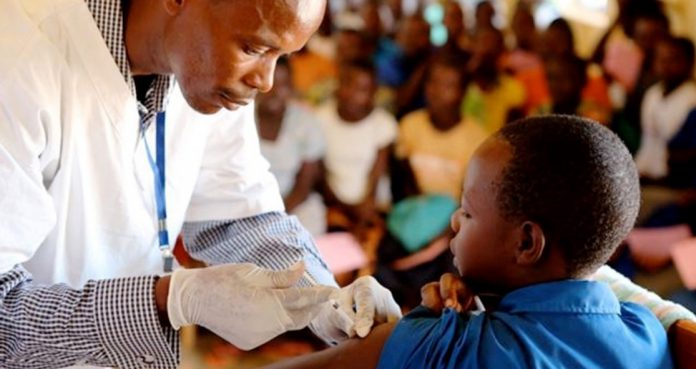On Tuesday, the World Health Organization (WHO) has said that the world’s first malaria vaccine will go to 360,000 children in three African countries.
The WHO said Malawi has already started vaccinating children under two years of age, while Kenya and Ghana will start using the vaccine in the coming weeks.
According to the agency, the vaccine offers partial protection from malaria, and clinical trials have found that it prevented four in 10 malaria cases.
WHO Director-General Dr. Tedros Adhanom Ghebreyesus said, “We have seen tremendous gains from bed nets and other measures to control malaria in the last 15 years, but progress has stalled and even reversed in some areas. We need new solutions to get the malaria response back on track, and this vaccine gives us a promising tool to get there.”
He added, “The malaria vaccine has the potential to save tens of thousands of children’s lives.”
Malaria is a parasitic infection transmitted through the bite of female Anopheles mosquitoes, which is preventable as well as treatable, yet around 435,000 people die of malaria each year.
According to WHO, children below five are at the greatest risk of its life-threatening malaria complications and it claims the death of one child every two minutes. Unfortunately, most of these deaths are seen in Africa, where over 250,000 children die from malaria every year.
Scientists at the British pharmaceutical company GlaxoSmithKline invented the malaria vaccine called “Mosquirix” in 1987. The vaccine has undergone years of clinical studies.
The WHO said there was a 62 percent reduction in malaria deaths and a 41 percent reduction in the number of cases from 2000 to 2015. However, according to the most recent data, malaria is making a comeback. In 2016, there were 217 million cases, and in 2017, there were 219 million cases.
Professor Adrian Hill of the University of Oxford, “It’s a difficult disease to deal with. The tools we have are modestly effective but drugs and insecticides wear out — after 10, 20 years mosquitoes become resistant. There’s a real concern that in 2020s, [cases] are going to jump back up again.”
Mosquirix will be given in four shots – three shots between five and nine months of age and the fourth shot around the second birthday.
The WHO said, “The vaccine was a ‘complementary malaria control tool’ to be used in addition to bed nets treated with insecticide, spraying indoor areas with insecticides as well as prompt diagnosis and treatment of the disease.
Senior staff scientist at the Wellcome Trust Sanger Institute Alena Pance said, “The vaccine was not overwhelmingly effective.” Pance added, “But it is very important to bear in mind that 40% protection in the most endemic part of the world, Africa, is better than no protection at all. Ultimately, this is the only vaccine that has some efficacy that we currently have and has taken decades to develop, this is in itself good news.”






















